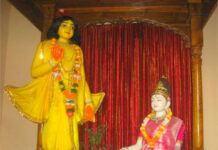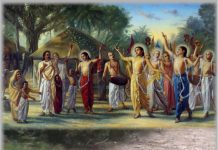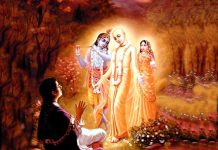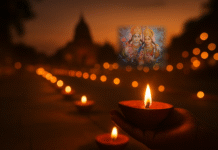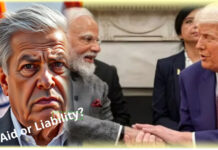Finally India has done it. Enough, or more than enough, has been said and done to implement and to obstruct GST rollout in India over several years. Indians have witnessed myriads of opinions, articles, argument papers, and verbal debates for and against GST. With India’s honorable Prime Minister Narendra Modi thanking Team India and all concerned parties, including the opposition, and announcing GST rollout, years of uncertainties have seen a pleasant conclusion. His words and confidence reminded freedom at midnight.
Politically motivated analysis aside, no sane economist will disagree that GST implementation is the biggest and most beneficial tax reform independent India has introduced since 1947 towards a simpler and stronger economy.
Significantly, during his speech, the Prime Minister did not forget to point out that the final GST council meeting was the 18th one and added that Bhagavad Gita also has 18 adhyayas, or chapters! By doing so he invoked auspiciousness and called GST rollout a sacred event. He also quoted India’s historically celebrated political advisor Chanakya Pandit and encouraged unity in diversity. He said the way Sardar Vallabh Bhai Patel united different territorial rulers and helped India once again become united, the GST has consolidated all taxes, almost 500 in number, into one tax- One nation One tax.
The beneficiaries of GST range from poor to rich and ordinary to elite. Daily wage earners to average serviceman and business launchers to foreign investors, GST will make life easier in terms of tax implications. The biggest beneficiaries are normal citizens who are generally confused about tax and afraid of tax terrorism. For them, GST essentially means going to any state in India and paying the same tax, and effortlessly knowing how much tax they will pay before making a purchase. For businessmen, no more waste of time in deciding which goods to buy which states from.
With this reform, the Prime Minister expressed confidence in ending the “inspector raj”, or “aphsar sahi” and emphasized that there are every possibility to achieve peace of mind for normal citizens who have suffered enormously due to different types of harassment from tax officers.
Narendra Modi requested rumor-mongers not to indulge in scaring general public about the new system and encouraged citizens to accept it, even if it means a little inconvenience in the beginning. He gave a very practical example of changing spectacles- initially it may cause some inconvenience but by using it eventually one becomes more comfortable.
Speaking during the event and expressing satisfaction over GST, honorable President of India, Pranab Mukherjee, said for India the introduction of GST is a moment of precedent, and for him it is a matter of personal satisfaction because of his role as country’s Finance Minister earlier. “I had always believed that GST was a matter of time and was happy when it was enacted and I gave assent to the Constitution amendment last year,” he reportedly said.
India’s Finance Minister Arun Jaitley said while welcoming the assembly that GST is the biggest and most ambitious tax reform which is an achievement of the country through consensus.
It was utterly unfortunate of most opposition parties which decided not to attend the mega national event. “Notwithstanding the fact that the GST Law was a consensus product evolved over 14 years, the function in colorfully-decked Parliament House was boycotted by major opposition parties like Congress, Trinamool Congress, RJD, DMK and Left parties, saying the government was making a spectacle of a legislation for self-promotion, a charge Jaitley rejected. In keeping with his party`s decision, former Primer Minister Manmohan Singh kept away from the event. However, MPs and leaders of Congress allies NCP and Samajwadi Party attended the function”, Zee News noted.
It remains an irony that although under Narendra Modi’s leadership India has seen definite, undeniable progress on various fronts, the opposition parties have adapted the role of enemies instead of opposition political parties, which is actually meant to help the nation maintain healthy democratic values.
On a personal note, as a citizen of India, it is disturbing to see that today’s opposition parties are unable to speak good of the ruling party even when its action make India proud and stronger. During the Vedic era, which is a proof of India’s glorious past, even real enemies who fought battles during the day would be friendly when out of the battlefields and wished each other well.
People of India need to realize that it is only Indian culture, essentially the Vedic culture, that can help the world become peaceful today. Anti-India and atheistic propaganda, promoted both by external and internal forces, will continue their efforts to deviate India from its historically high moral values and but it is the duty of every Indian to first learn and perfect his or her life by practicing Vedic values and then spread it to the world for others’ benefit.


